Rei Meguro
I work with Full Stack, Computer Vision, and Natural Language Processing.

Rei Meguro
I work with Full Stack, Computer Vision, and Natural Language Processing.

About Me
I'm an ambitious Computer Science student with a passion in automation and designing robust, efficient systems. I enjoy working with all sorts of AI (ML, CV, NLP, RL), and I aspire to automate all mundane daily tasks so we can focus on solving the important problems.
Education
Cornell University
M.E in Computer Science
Aug 2025 - Mar 2026
University of Michigan
B.S.E in Computer Science
Aug 2022 - Mar 2025, GPA: 4.0
Technical Skills
C, C++, Python, JavaScript
MATLAB, Julia, HTML/CSS
Git, Docker, React, Next.js, Django, Flask
FastAPI, PyTorch TensorFlow, SFML
Awards
4th IEEE ICAIC Conference: Best Paper
Mapping Thought to Action: 1st Place
MHacks 2024: Best Use of Intel AI
James B. Angell Scholar
Branstrom Freshman Prize
My Recent Projects
Click on the cards to visit project links
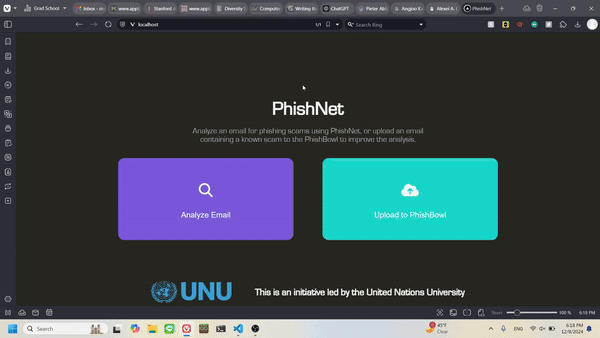
AdaPhish
AdaPhish is an adaptive phishing detection and submission platform designed to enable secure sharing of phishing emails and provide a robust solution to evolving phishing scams. It uses a combination of LLMs and a RAG-like approach to continuously improve and identify new phishing threats. The app is built using Docker, FastAPI, Next.js, and Nginx, making it easily deployable by any organization. The design and experiments done with AdaPhish is published as the paper AdaPhish: AI-Powered Adaptive Defense and Education Resource Against Deceptive Emails , and it has even won the Best Paper Award at the 4th IEEE ICAIC Conference.

Raphael
Raphael is a chess engine I made in C++, and it is accompanied with a GUI built with SFML. It is capable of easily beating most players and even some publicly available chess engines. It uses the recursive negamax function to rapidly explore outcomes of different moves, and it leverages several optimizations incuding transposition tables, iterative deepening, SEE pruning, and pondering. It also has a NNUE mode to evaluate using a neural network, though I am currently in the process of training it using data from my own evaluation function rather than Stockfish's.
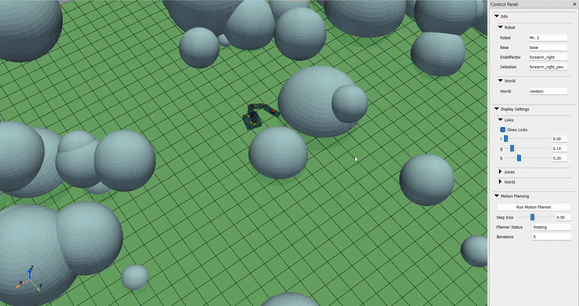
Kineval
Kineval is a Python-based interactive learning tool made for EECS 367 at the University of Michigan and it includes a wide variety of features including URDF loading, forward kinematics, inverse kinematics, collision detection, and RRT motion planning. It's written in a manner to allow students to implement these features themselves while only focusing on the key details (i.e., not the rendering, keyboard control, etc.).
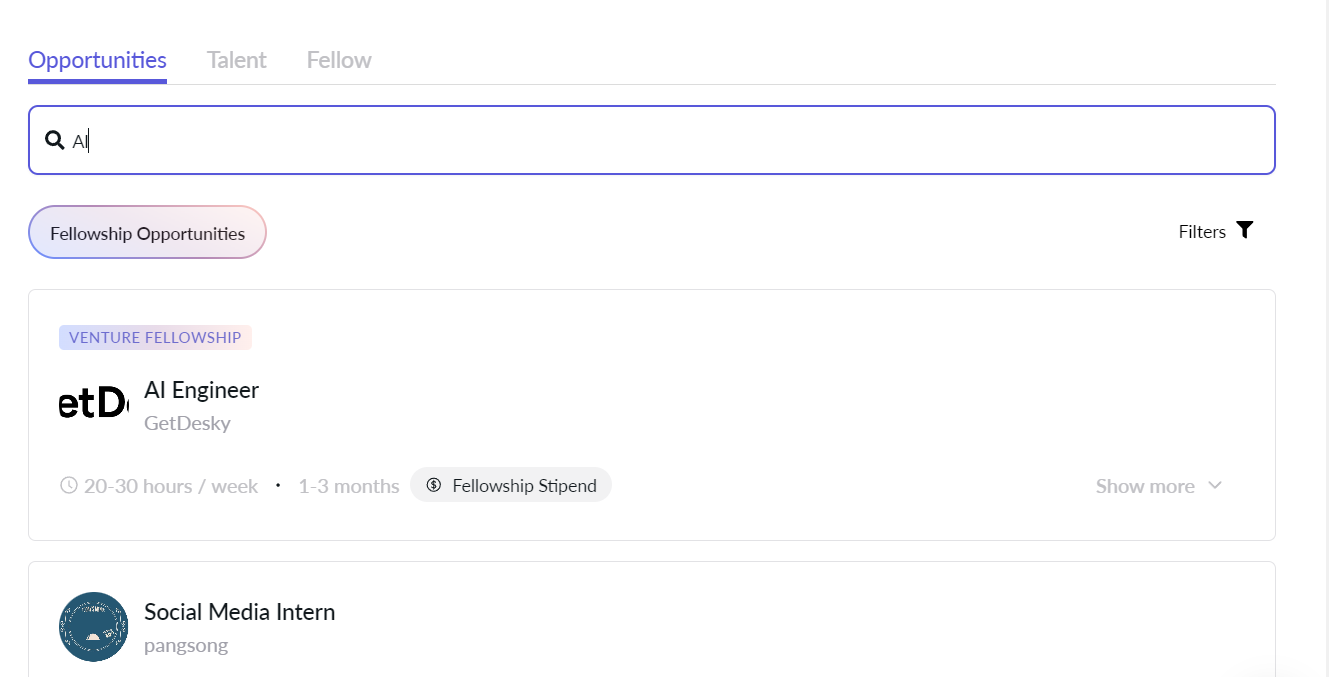
Folio
Folio is a startup which connects students and freelancers with venture-backed startups. I contributed to many aspects of the platform, including its robust search engine, notification system, and user data migrations from the old platform, working with Django, Next.js, Git, Docker, and a variety of other technologies.

ConverseCart Search Engine
I worked with the startup ConverseCart to build an AI-powered search engine by leveraging word embeddings, bag-of-words models, and cross encoders. It uses a retrieve and rerank approach, where it first sources a bunch of candidate products using a combination of vector search and keyword matching, then uses a custom trained cross encoder to rerank the products by relevancy. Finally, a personalization model is used to boost certain products and filter others, while relevant data is cached throughout the whole search process to speed up search with similar queries for all users in the future.
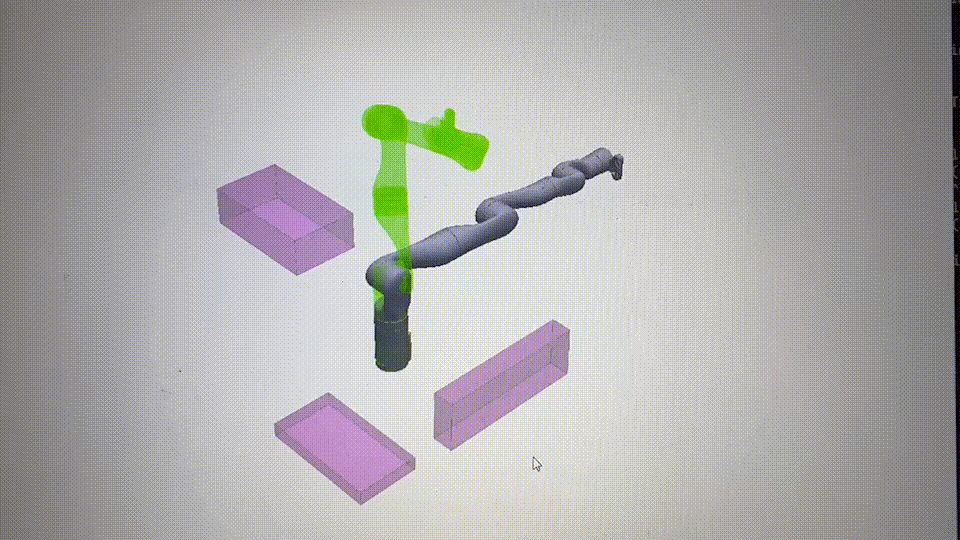
RTD Toolkit
RTD is a technique developed at the University of Michigan for making provably safe motion plans. It accounts for uncertainties in the measurements as well as the robot movement using polynomial zonotopes to avoid collisions. I worked with ROAHM lab, the team that developed this technique, to built a Python toolkit for easily implementing RTD on any grounded robot, recreating all of the functionality in the original implementation, and introducing additional features such as a URDF loader.
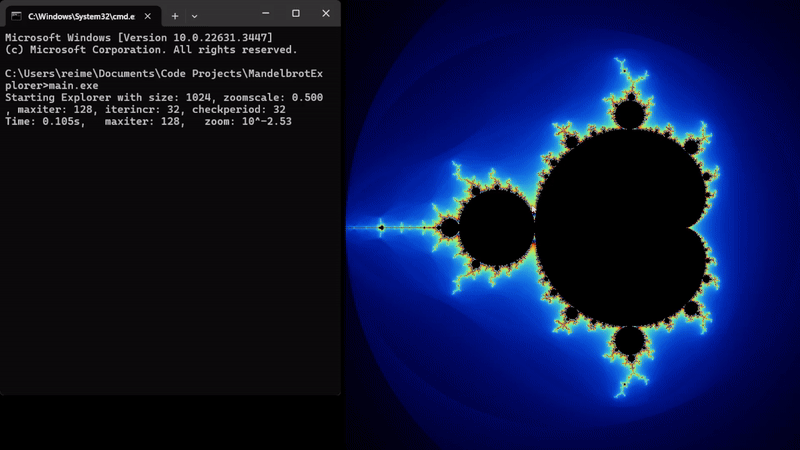
Mandelbrot Fractal Explorer
This is a Mandelbrot Fractal Explorer I built in C++ & SFML. It uses thread pools to calculate the pixel colors concurrently, and is able to achieve zoom levels of 10^-16 before floating point precision comes into effect. It also implements a few other optimizations such as cardoid and periodicity checking to skip known regions that are in the Mandelbrot set.

Sudoku Solver
In this project, I combined a backtracking Sudoku solver with pyautogui and a CNN digit recognition model to automatically take a screenshot of the game, identify the given digits, and enter the solution once it finds one. Although each component is fairly simple, it was the first time I combined multiple tools to create an interactive game solver.
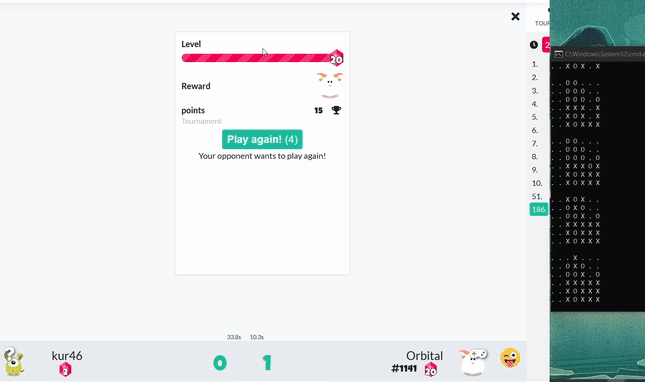
Nerd Wrecker: Connect 4
This project is my favorite out of the Nerd Wrecker series - a series of projects where I build a fully automatic AI to beat players in various online turn-based games on papergames.io. It uses the minimax algorithm along with a pyautogui based system to fully automatically beat other players in Connect 4. In the gif, the bot is playing as black, and it easily defeats the other player. In fact, the bot was so good that it got banned after a few minutes of play with several users.
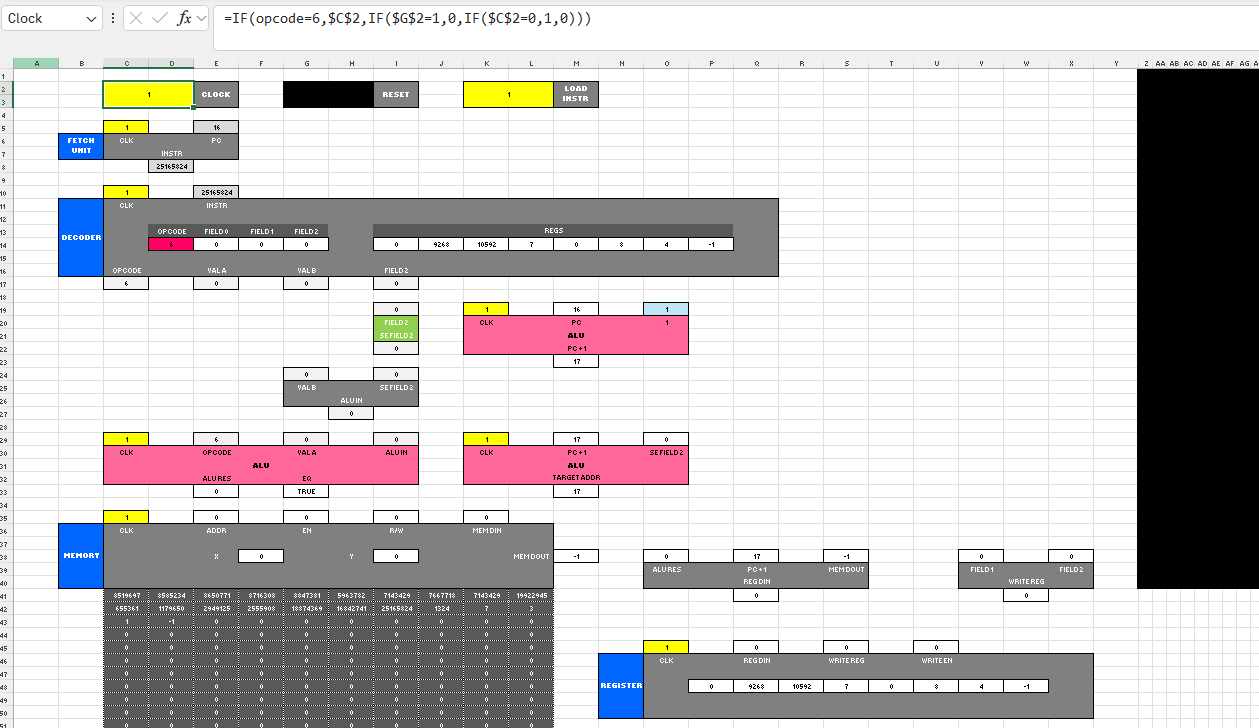
LC2K CPU Simulator
LC2K (Little Computer 2000) is a minimalistic ISA with 8 instructions, used throughout UMich's EECS 370 Computer Organization class. Inspired by a YouTube video implementing a CPU in Excel, I set out to to create my own single-cycle CPU implementing LC2K in Excel. It was a nice and fun extension to what I've learnt in class, and I've even added my own feature by creating a memory-mapped display with 4-bit colors, allowing it to technically run games such as DOOM and Tetris, albeit at an unplayably slow framerate.
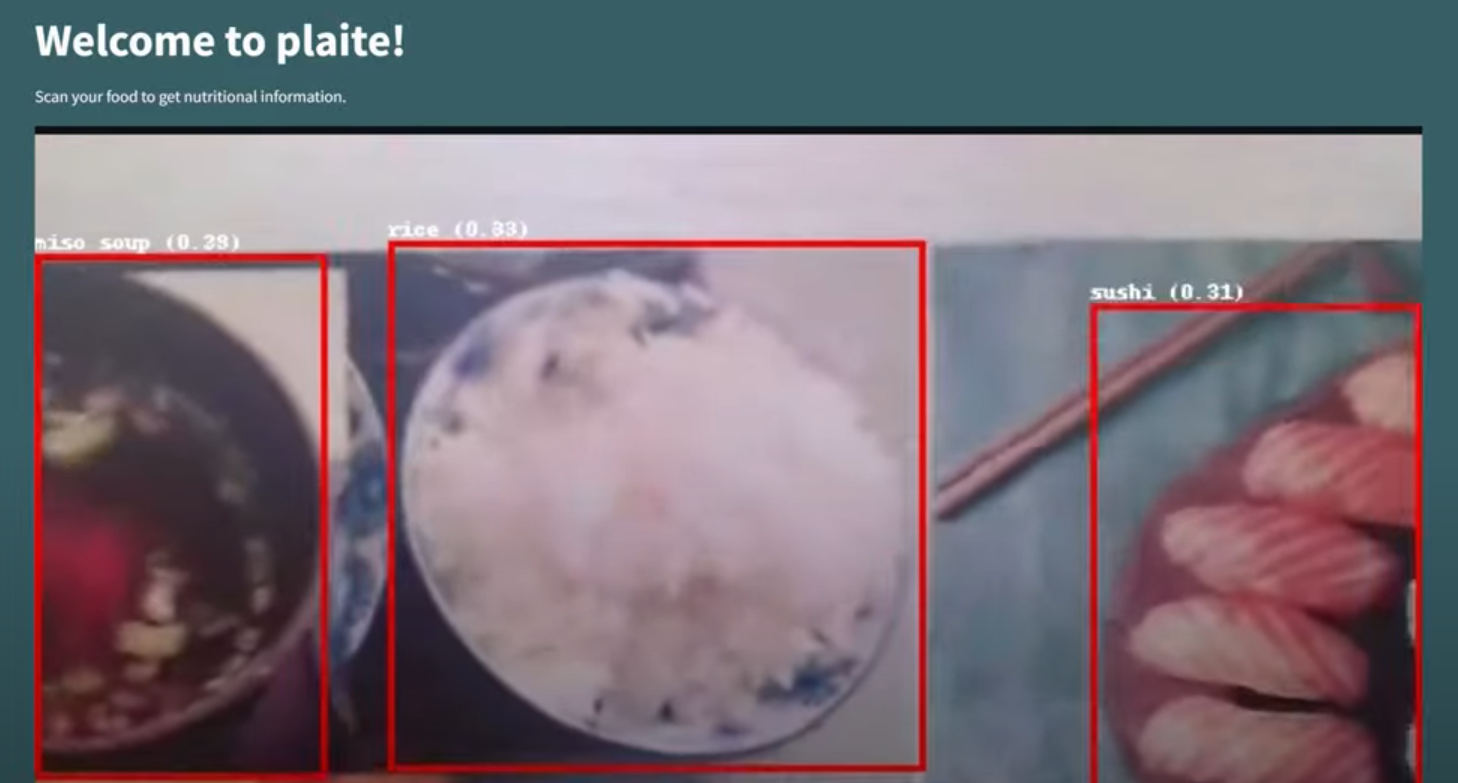
Plaite
Plaite is a nutrition tracking app which uses YOLOv8 for real time food detection to simplify the nutrition tracking process for users, and it was built in 24 hours during the MHacks 2024 Hackathon. It also leverages LLMs to integrate a custom chatbot that can offer recipe and nutritional advice given the data and nutrition trends it receives. Plaite was a great success, winning us the Best Use of Intel AI Award.
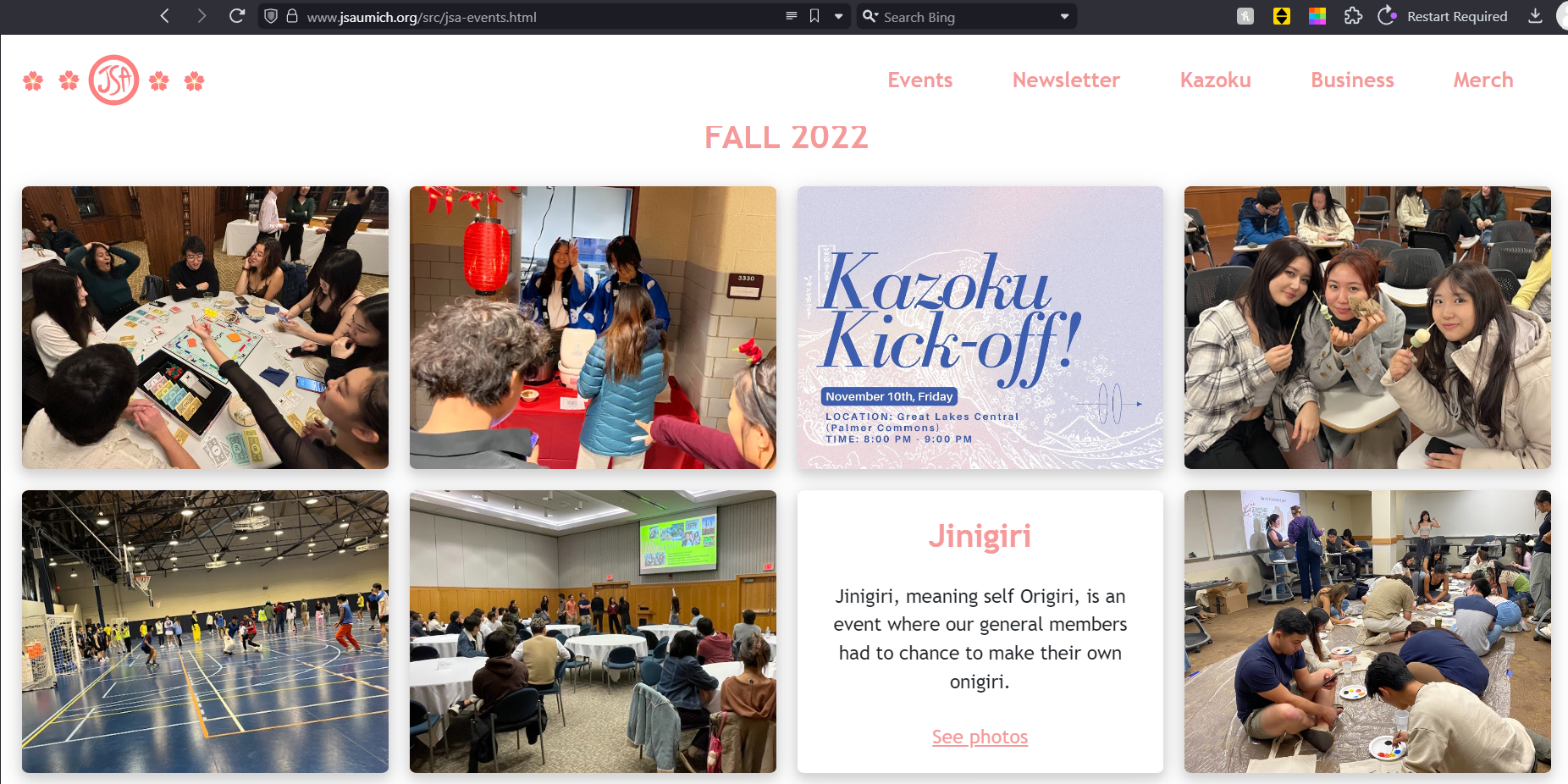
JSA Website
This website is the home page for the Japan Student Association (JSA) at the University of Michigan. Yet, the previous version of it had a major limitation where very few people knew how to edit the website, which made it constantly outdated. I set out to improve the website by refactoring out the page content into a spreadsheet so that anyone could easily modify it, which allowed us to more easily advertise our events and share our monthly newsletters.